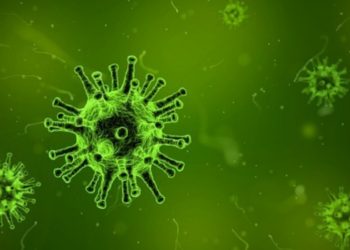Alexion Pharmaceuticals, Inc announced topline results from the REGAIN study, a Phase 3 registration trial of eculizumab (Soliris®) in patients with refractory generalized myasthenia gravis (gMG).
Refractory gMG is an ultra-rare segment of MG—a debilitating, complement-mediated neuromuscular disease—in which patients have largely exhausted conventional therapy and continue to suffer profound muscle weakness throughout the body, resulting in slurred speech, impaired swallowing and choking, double vision, upper and lower extremity weakness, disabling fatigue, shortness of breath due to respiratory muscle weakness, and episodes of respiratory failure.1-5 In the study, the primary efficacy endpoint of change from baseline in Myasthenia Gravis-Activities of Daily Living Profile (MG-ADL) total score, a patient-reported assessment, at week 26, did not reach statistical significance (p=0.0698) as measured by a worst-rank analysis.
The first prospectively defined secondary efficacy endpoint of change from baseline in Quantitative Myasthenia Gravis (QMG) total score, a physician-administered assessment of MG clinical severity, with eculizumab treatment compared to placebo at week 26, achieved a p-value of 0.0129 as measured by a worst-rank analysis. In addition, the second and third prospectively defined secondary efficacy endpoints of responder status in MG-ADL and QMG achieved p-values <0.05: the proportion of patients with at least a 3-point reduction in MG-ADL total score and no rescue therapy from baseline to week 26 with eculizumab treatment compared to placebo achieved a p-value of 0.0229, and the proportion of patients with at least a 5-point reduction in QMG total score and no rescue therapy from baseline to week 26 with eculizumab treatment compared to placebo achieved a p-value of 0.0018.
“While the REGAIN study missed its primary endpoint, I am encouraged by the clinically meaningful improvements in MG-ADL and QMG measures in patients treated with eculizumab compared with placebo. The magnitude of effect on QMG observed in this large, prospective registration trial is unprecedented in my more than 30 years of clinical investigation of refractory MG patients, and I look forward to presenting additional outcomes at ICNMD,” said James F. Howard Jr., M.D., Distinguished Professor of Neuromuscular Disease, Professor of Neurology, Medicine & Allied Health, and Chief, Neuromuscular Disorders Section, The University of North Carolina School of Medicine. “There is an urgent need in the MG community for a therapy with the potential to dramatically improve the lives of patients with refractory MG, who continue to experience profound complement-mediated muscle weakness that makes it difficult or impossible to perform simple daily activities, including walking, talking, swallowing, and even breathing normally.”
Pre-specified sensitivity analyses were prospectively defined to validate results for the primary and first secondary endpoints. Three of the four prospectively defined sensitivity analyses around the primary endpoint of MG-ADL achieved p-values <0.05, including the sensitivity analysis for change from baseline in MG-ADL using repeated measures, which showed a mean change with eculizumab treatment at week 26 of -4.2 versus a mean change with placebo at week 26 of -2.3 and achieved a p-value of 0.0058. Additionally, all four prospectively defined sensitivity analyses around the first secondary endpoint of QMG achieved p-values <0.05, including the sensitivity analysis for change from baseline in QMG using repeated measures, which showed a mean change with eculizumab treatment at week 26 of -4.6 versus a mean change with placebo at week 26 of -1.6 and achieved a p-value of 0.0006.
“The primary endpoint of the REGAIN study missed statistical significance, however the findings from this study underscore the pivotal role of complement inhibition in addressing the underlying pathophysiology of refractory gMG. Importantly, the totality of data reviewed to date, including the first three secondary endpoints and a series of prospectively defined sensitivity analyses, shows early and sustained substantial improvements over 26 weeks for patients treated with eculizumab compared to placebo,” said Martin Mackay, Ph.D., Executive Vice President and Global Head of R&D at Alexion. “Today, patients with refractory gMG continue to suffer severe disease-related morbidities that often lead to hospital visits and ICU stays, despite currently available therapies. We look forward to discussing the results with regulators in the U.S. and Europe, and working together to address the urgent needs of patients with this devastating disease.”
Alexion continues to analyze the data from the REGAIN study, and results will be presented on July 7, 2016, during the Hot Topics session at the 14th International
About Soliris ® (eculizumab)
Soliris is a first-in-class terminal complement inhibitor developed from the laboratory through regulatory approval and commercialization by Alexion. Soliris is approved in the U.S. (2007), European Union (2007), Japan (2010) and other countries as the first and only treatment for patients with paroxysmal nocturnal hemoglobinuria (PNH) to reduce hemolysis. PNH is a debilitating, ultra-rare and life-threatening blood disorder, characterized by complement-mediated hemolysis (destruction of red blood cells). Soliris is also approved in the U.S. (2011), European Union (2011), Japan (2013) and other countries as the first and only treatment for patients with atypical hemolytic uremic syndrome (aHUS) to inhibit complement-mediated thrombotic microangiopathy, or TMA (blood clots in small vessels). aHUS is a debilitating, ultra-rare and life-threatening genetic disorder characterized by complement-mediated TMA. Soliris is not indicated for the treatment of patients with Shiga-toxin E. coli-related hemolytic uremic syndrome (STEC-HUS). For the breakthrough medical innovation in complement inhibition, Alexion and Soliris have received some of the pharmaceutical industry’s highest honors: the Prix Galien USA (2008, Best Biotechnology Product) and France (2009, Rare Disease Treatment).
About Alexion
Alexion is a global biopharmaceutical company focused on developing and delivering life-transforming therapies for patients with devastating and rare disorders. Alexion is the global leader in complement inhibition and has developed and commercializes the first and only approved complement inhibitor to treat patients with paroxysmal nocturnal hemoglobinuria (PNH) and atypical hemolytic uremic syndrome (aHUS), two life-threatening ultra-rare disorders. In addition, Alexion’s metabolic franchise includes two highly innovative enzyme replacement therapies for patients with life-threatening and ultra-rare disorders, hypophosphatasia (HPP) and lysosomal acid lipase deficiency (LAL-D). Alexion is advancing the most robust rare disease pipeline in the biotech industry with highly innovative product candidates in multiple therapeutic areas. This press release and further information about Alexion can be found at: www.alexion.com.

















